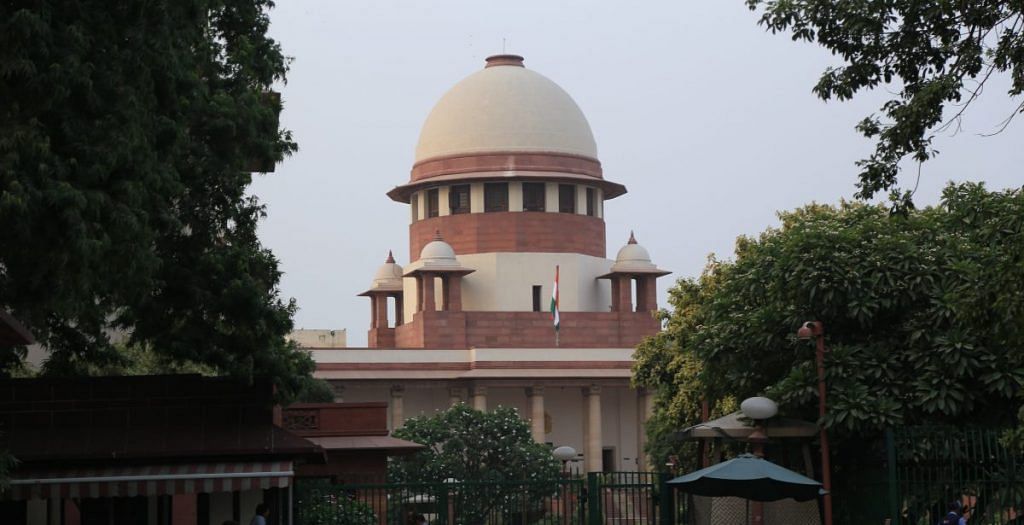For Narendra Modi and Amit Shah, the numbers – 311 and 80 – don’t matter much. These are the numbers of Lok Sabha MPs who voted for and against the passage of the controversial Citizenship (Amendment) Bill. What the Supreme Court will do to this bill doesn’t matter either to these two men.
For Modi and Amit Shah, the real numbers that matter are 96.63 crores and 17.22 crores – the population of Hindus and Muslims in India as per the 2011 census data. Add to it 2.78 crore Christians, 2.08 crore Sikhs, 0.84 crore Buddhists and 0.45 crore Jains – all communities that have been clubbed alongside Hindus in the Citizenship (Amendment) Bill or CAB – and the Modi-Shah duo would have gone to bed satisfied after the passage of the Bill in the Lok Sabha at midnight.
In fact, they wouldn’t be too worried if the CAB now gets stalled in the Rajya Sabha or by the Supreme Court. Their unstated purpose, which becomes more clear if one also takes into consideration the nation-wide National Register of Citizens (NRC), is to convey that Muslims have no place in India.
Also read: Citizenship Bill has only one aim: protect non-Muslims, harass Muslims
If the parliament passes it, the theatre is likely to shift to the Supreme Court. Even in Parliament, the constitutionality of the bill, vis-à-vis Article 14, was questioned. But there are many who feel that the Supreme Court, where the legal challenge to the amendments will most certainly be heard if and when the CAB becomes the law after being passed by the Rajya Sabha and receiving the assent of the President, would rule against the amendments for not being in line with the Constitution.
The Supreme Court in several cases, particularly in S.R. Bommai versus Union of India, has held secularism to be part of the basic structure of the Constitution.
It would be naïve to think that Narendra Modi and Amit Shah aren’t aware of this possibility of a judicial review. They would have been made aware by their legal advisers. But, for them, the hope is that the 96.63 crore Hindus would see them, once again, as the real saviours of the majority community, who have been nursing a sense of having been victimised because the BJP’s Hindutva rhetoric tells them so.
Technicalities about the CAB being unconstitutional wouldn’t have stopped this government from taking a shot at what is clearly a vote-catching move.
Just wait till either the Prime Minister or the Home Minister publicly questions political parties that opposed the CAB and cast them as anti-Hindu and pro-Muslim.
Also read: Congress wore 1971 war trophy, but left an unfinished business. CAB came out of that
Why the proposed is law problematic
The most important criticism of the Citizenship Bill is that it doesn’t meet the standard set in Article 14 of the Constitution. The Supreme Court has, beginning with the landmark judgment of 1973 in Kesavananda Bharati versus State of Kerala case, repeatedly held that while amending any constitutional provision, Parliament can’t tinker with the basic structure of the Constitution.
Since the amendments proposed under the CAB can’t possibly clear the test of Article 14, which bars the state from discriminating against on the grounds of religion, race, caste, sex or place of birth, a good lawyer shouldn’t have much difficulty in convincing the court about the legal infirmities in the amendments.
All that they will have to tell the court is that the CAB’s real motive is to make religious discrimination an intrinsic part of our legal system.
However, in light of the recent track-record of the Supreme Court in handling issues involving the Constitution, the response and timing of the top court can’t be predicted. Gone are the days when we could expect with certainty that our top constitutional court would open its doors after midnight to consider the mercy plea of even a convicted terrorist – Yakub Menon.
Now, forget swift intervention in cases where the Constitution and constitutional values are at stake – Article 370, ban on internet and media gag in Kashmir, Ramjanmabhoomi-Babri Masjid title dispute case – even a delayed judicial intervention isn’t a given.
Also read: BJP’s citizenship bill bringing back Partition nightmare has no place in 2019 India
Incidentally, while the latest bill proposes to amend Section 6 of the original Act, a legal challenge to Section 6A, which lays down the criteria for granting citizenship to persons from erstwhile East Pakistan (now Bangladesh) as per the Assam Accord, is still pending before a Constitution bench of the Supreme Court.
Among the issued pending adjudication before the bench is whether a citizen of another country can be granted Indian citizenship without first formally giving up citizenship of their original country. Otherwise, it could become a case of dual citizenship, something barred under the Indian Constitution.
But, even if the Supreme Court does intervene and decide to strike down the unconstitutional amendments to the Citizenship Bill, Modi-Shah would not have too much to worry about. The BJP has already achieved the real purpose behind the contentious exercise – divide and rule.
The author is a senior journalist. Views are personal.
